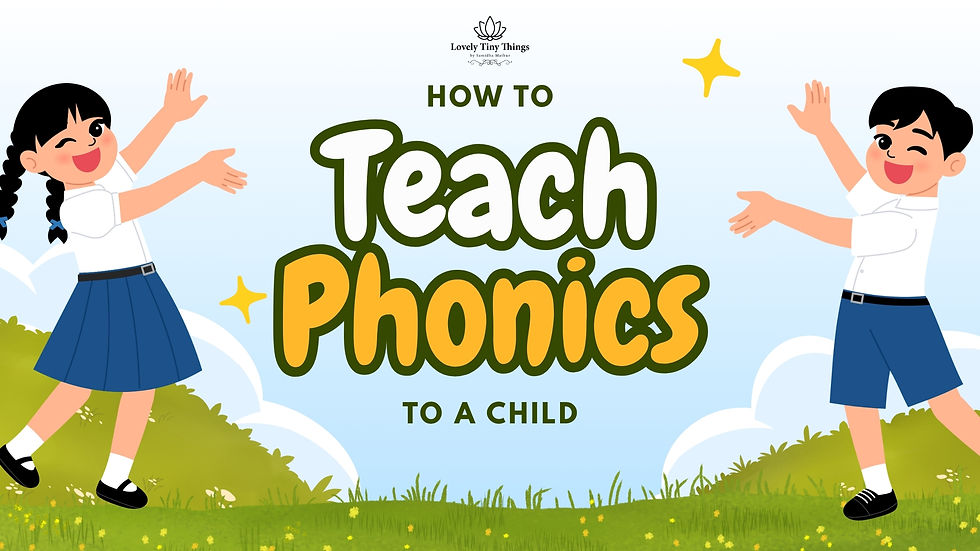How can you stop siblings to fight?
- Jun 30, 2020
- 4 min read
Sibling fighting is a natural occurrence in growing children, however, when this natural event reaches a high intensity, parents have to dive in to resolve differences. As a parent, you might feel that the process of resolving conflict and preventing children to fight is very challenging. This blog will provide you with some easy tips that you can adopt to manage sibling rivalry.
Sibling fight is termed to be healthy (until it is not destructive) as it allows the children to know and understand each other better. Sometimes it is better to stay back from the sibling fight for a while because it let the children resolve the differences and arguments by themselves. However, when you see that fight is turning out to be physical involving the passing of nasty remarks and name-calling, etc and break it up before someone gets hurt.
When a disagreement continues, and reaches to the level of physical and verbal misconduct, intervene and stop it immediately.
WHY DO SIBLINGS FIGHT?
Sibling fights, although, are common in young children, it not uncommon in adult siblings too. The only reason can not be the jealously. There can be a lot of many other reasons too. The other common reasons why siblings fight are discussed below:
Attention seeking behaviour - Sometimes, siblings fight only to grab their parents' attention. This is mostly seen in cases where both the parents are working and are unable to devote much time to their children.
Changing needs - Needs often change as the child grows in age concerning the sibling. For example, toddlers are usually more possessive about their toys and games. So when these toys and games get shared with their newly arrived sibling, they feel bad. Whereas, the school-going children feel bad when they see that parents are given more attention and care to the new little sibling. And lastly, when a child attains teenage and willing to live an independent and free life, taking care of the younger siblings may hurt its ego.
Unequal family treatment - There are times when parents, unknowingly, display more love and care to any one of their children. This behaviour of the parents can be misjudged by the other child(ren) by unequal family treatment.
Role model - Parents are the first role-model in a child's life. When children see their parents resolving their arguments peacefully without giving any physical harm to each other, they adopt the behaviour. Otherwise, vice-versa happens when they see their parents arguing badly.
Individual behaviour - Some kids behave very clingy and love to stay with their moms most of the time. This behaviour is often perceived in the wrong way by their sibling, thinking mom and dad love the other child more.
HOW TO STOP SIBLINGS TO FIGHT?
Here is what you do to stop the fight among the children.
Stop the fight before someone starts crying - This implies the physical separation of your children. Send them to the opposites sides of the room, preferably to the different rooms and let them settle down.
Don't shout or express your anger - It may sound pretty impossible, however, to makes things sorted out easily, do not shout at them at that moment. This will help you to give positive feedback on behaviour to your children.
Talk to your children later - Children often react negatively when they are being preached in front of others. Therefore, to make them understand properly about the positive behaviour, talk to them in alone without giving any blame or shame.
Image source: freepik.com
HOW CAN YOU HANDLE SIBLING FIGHTS CONSTRUCTIVELY?
This is something vital to understand that not every time physical punishment works. Sometimes, your little efforts towards the behavioural change can do wonders in your children behaviour.
Treat your every child equally - You should not be biased in your behaviour at the time of handing siblings fight. Every child should be equally treated, although, this does not imply that a six-year-old child is getting treated like a two-year-old child or vice-versa.
Avoid negative comparisons - Avoid if you say something like this -
"You should not do this because you're older to her."
"You are trouble-maker."
"See, your sister is so intelligent and you are not."
These kinds of statements hurt a child and make him resentful.
Identify the cause of fighting - It is vital to know the cause of fighting before deciding about the consequences. This will help you to deal with the situation positively without letting any child being wrongly treated.
Set up the family rules - Rules help to set up expectations about the behaviour clearly. These family rules should be discussed with the children as well before finalizing them. Moreover, it should be applicable to every member of the family. This makes the children aware of the consequences of any misconduct.
Appreciate them for being good - Do not hesitate to give positive feedback when you see your children behaving well with each other. It encourages the development of positive behaviour in children.
If you have loved reading my article, do not forget to hit the 'heart' button to show your love. Additionally, if you have some thoughts, ideas or feedback to this post, please share it with me through the comment section below.


















Comments